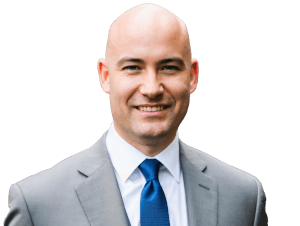If you suspect your loved one has been a victim of misdiagnosis or failure to diagnose, you should question the nursing home or care facility and report the incident to Georgia Healthcare Facility. Make sure your loved one receives treatment as soon as possible, since misdiagnosis or failure to diagnose can bring serious, and often fatal, consequences. You may want to ask a different physician to examine your loved one to try and get a correct diagnosis. After getting treatment for your loved one, please feel free to call and speak to one of our experienced nursing home neglect lawyers for a consultation.
Sometimes, misdiagnosis is unavoidable. Because many conditions have similar symptoms, doctors or caregivers may simply make an honest mistake and diagnose the wrong condition.
However, in many cases, caregivers fail to notice obvious signs, or fail to administer treatment due to negligence. In these instances, a lawyer will be able to help you decide whether or not you should file a claim against the nursing home or physician. With help from a Georgia misdiagnosis or failure to diagnose lawyer, you may be able to receive compensation for your loved one’s suffering, and for any medical expenses caused by the error.
Signs of Misdiagnosis or Failure to Diagnose
Signs of misdiagnosis or failure to diagnose may include illness, infection, headaches or other bodily pain, depression, weight loss, fever, and fatigue, along with a number of other symptoms.
Some conditions are commonly misdiagnosed in elderly adults, such as urinary tract infections (UTI), delirium, dehydration, essential tremor, and fibromyalgia. These conditions are often mistaken for other diseases like dementia, rheumatoid arthritis, and Parkinson’s disease. Symptoms of these conditions include depression, confusion, agitation, memory loss, fever, shakiness or tremors, pain, stiffness, and an altered mental state.
A misdiagnosis may also occur in conjunction with medication, which can cause side effects that are sometimes mistaken for symptoms of another condition. When a condition is misdiagnosed, or simply left undiagnosed, the person suffering from the condition may experience diminished health, weakness, pain, injury, and in some cases death. This is especially true for nursing home residents, who have weakened immune systems and are more susceptible to illness and injury. Because of this, nursing homes should do all they can to diagnose residents properly and administer the right kind of treatment.
For a free legal consultation with a nursing home misdiagnosis lawyer serving Georgia, call

Preventing Diagnosis Errors
Nursing homes are required to assess residents as soon as they enter the facility. This assessment must be thorough and comprehensive, covering details like a resident’s vision, behavioral patterns, skin conditions, risk of infection, demographic, and many other factors.
Nursing homes are also required to consult a physician in developing a specific care plan for each individual resident. Furthermore, nursing homes must have physicians on hand to diagnose and attend to each resident, and must get a doctor’s order before administering medication.
Following the initial assessment, nursing homes must perform follow-up assessments at regular intervals, usually on a quarterly basis, as well as anytime a resident experiences a sudden change in health. Caregivers should adapt a resident’s care plan to reflect each new assessment, and caregivers and physicians should be thorough in examining and diagnosing residents.
Additionally, caregivers should be aware of side effects that may occur from certain medications, and of symptoms that may lead to a mistaken diagnosis. Nursing homes should train caregivers to recognize symptoms of medical conditions in residents and administer treatment promptly.
Georgia Nursing Home Misdiagnosis Lawyer Near Me (678) 823-7678
Reasons for Misdiagnosis or Failure to Diagnose
There are many reasons a misdiagnosis may occur. Since there are over 20,000 human diseases, it’s hardly surprising that doctors sometimes fail to correctly diagnose a condition – simply because they do not know much about it. On top of that, some doctors are more experienced or knowledgeable than others.
Misdiagnosis can also be the result of an erroneous lab test. Laboratory tests are not always correct; in fact, they are wrong in many cases, and there are many factors which can cause a lab test to yield the wrong conclusion. In other cases, human error may cause a lab test to fail.
Other times, nursing homes may be more specifically to blame for misdiagnosis or failure to diagnose. A nursing home may try to save money or time by not performing certain diagnostic tests on a resident, even when the situation clearly indicates the need for those tests. Nursing homes that are understaffed may fail to assess residents correctly simply because they do not have the time. Or nursing homes may try to save money by not bringing in a physician to assess residents.

Hold the Facility Accountable for Misdiagnosis or Failure to Diagnose with a Georgia Lawyer
A nursing home may be held responsible for misdiagnosis or failure to diagnose when the mistake caused serious consequences for a resident. In order to find a nursing home or physician guilty of misdiagnosis or failure to diagnose, a plaintiff must prove that a different doctor or nursing home would have diagnosed the resident correctly. Or, the plaintiff may be able to prove that the nursing home did not consider a certain condition when they should have, or that they failed to perform the necessary tests to arrive at the right conclusion.
Failure to diagnose may be easier to prove than misdiagnosis, since nursing homes are responsible for recognizing symptoms in their residents and responding quickly to give treatment.
If a misdiagnosis or failure to diagnose results in the death of a resident, then the nursing home may be required to compensate the resident’s family in a wrongful death or survival action case. In other cases, the nursing home may be required to compensate the resident for any medical expenses related to the misdiagnosis or failure to diagnose, and for any related pain and suffering. Contact a Georgia misdiagnosis or failure to diagnose lawyer to learn more about bringing a claim for damages.




